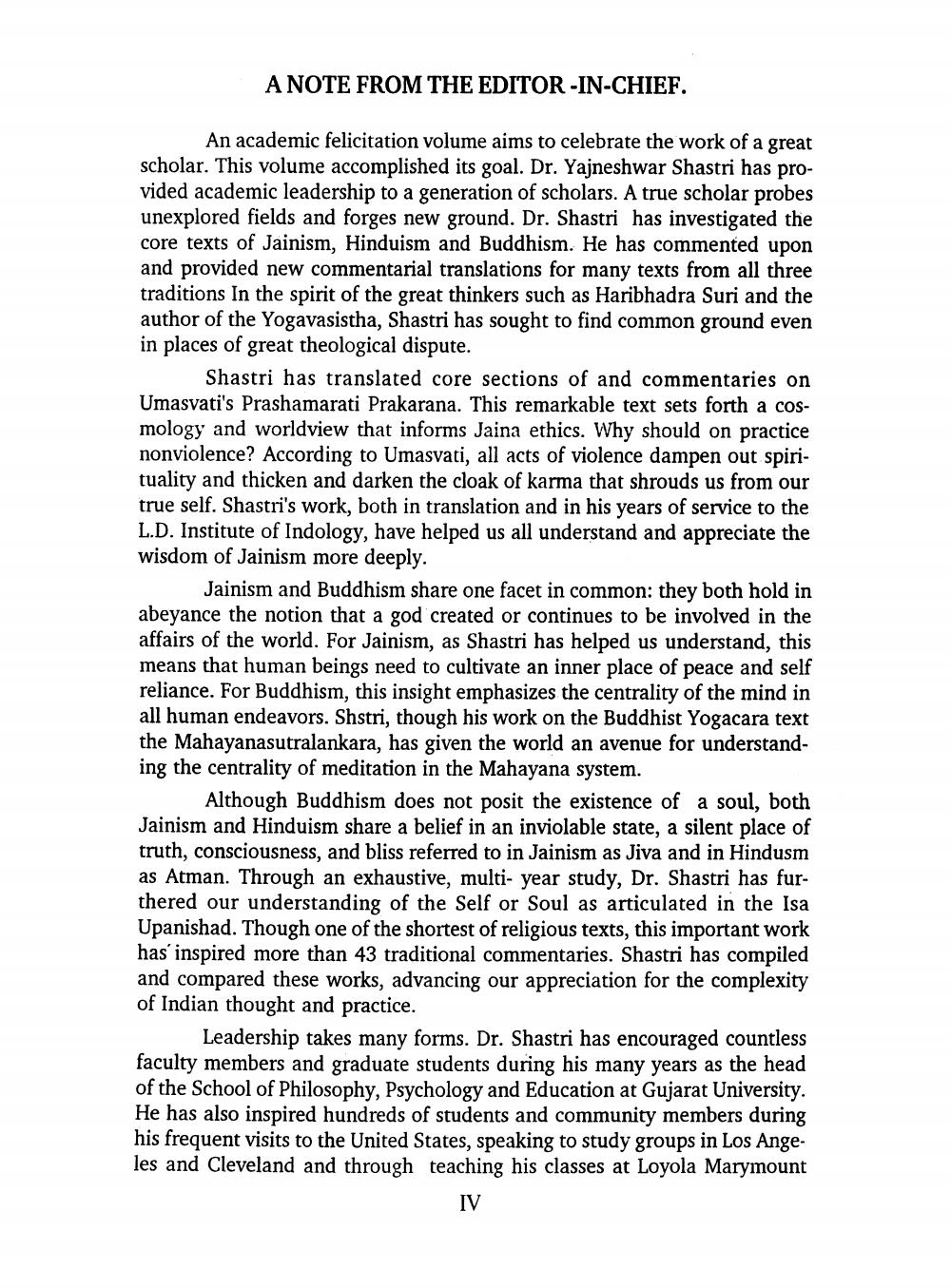________________
A NOTE FROM THE EDITOR-IN-CHIEF.
An academic felicitation volume aims to celebrate the work of a great scholar. This volume accomplished its goal. Dr. Yajneshwar Shastri has provided academic leadership to a generation of scholars. A true scholar probes unexplored fields and forges new ground. Dr. Shastri has investigated the core texts of Jainism, Hinduism and Buddhism. He has commented upon and provided new commentarial translations for many texts from all three traditions in the spirit of the great thinkers such as Haribhadra Suri and the author of the Yogavasistha, Shastri has sought to find common ground even in places of great theological dispute.
Shastri has translated core sections of and commentaries on Umasvati's Prashamarati Prakarana. This remarkable text sets forth a cosmology and worldview that informs Jaina ethics. Why should on practice nonviolence? According to Umasvati, all acts of violence dampen out spirituality and thicken and darken the cloak of karma that shrouds us from our true self. Shastri's work, both in translation and in his years of service to the L.D. Institute of Indology, have helped us all understand and appreciate the wisdom of Jainism more deeply.
Jainism and Buddhism share one facet in common: they both hold in abeyance the notion that a god created or continues to be involved in the affairs of the world. For Jainism, as Shastri has helped us understand, this means that human beings need to cultivate an inner place of peace and self reliance. For Buddhism, this insight emphasizes the centrality of the mind in all human endeavors. Shstri, though his work on the Buddhist Yogacara text the Mahayanasutralankara, has given the world an avenue for understanding the centrality of meditation in the Mahayana system.
Although Buddhism does not posit the existence of a soul, both Jainism and Hinduism share a belief in an inviolable state, a silent place of truth, consciousness, and bliss referred to in Jainism as Jiva and in Hindusm as Atman. Through an exhaustive, multi-year study, Dr. Shastri has furthered our understanding of the Self or Soul as articulated in the Isa Upanishad. Though one of the shortest of religious texts, this important work has inspired more than 43 traditional commentaries. Shastri has compiled and compared these works, advancing our appreciation for the complexity of Indian thought and practice.
Leadership takes many forms. Dr. Shastri has encouraged countless faculty members and graduate students during his many years as the head of the School of Philosophy, Psychology and Education at Gujarat University. He has also inspired hundreds of students and community members during his frequent visits to the United States, speaking to study groups in Los Angeles and Cleveland and through teaching his classes at Loyola Marymount
IV




